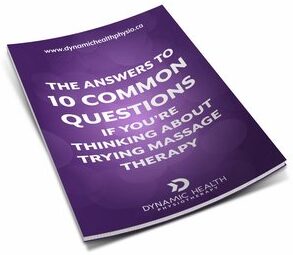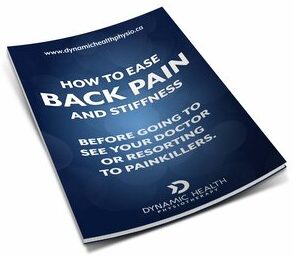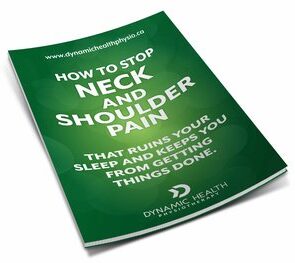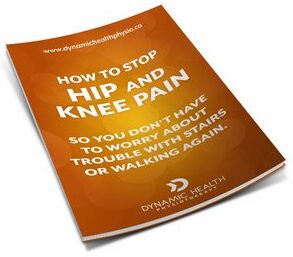- April 30, 2023
PHYSIOTHERAPY MONTH – WHAT DOES PHYSIOTHERAPY LOOK LIKE AND HOW CAN IT HELP YOU
Physiotherapy Month – What Does Physiotherapy Look Like And How Can It Help You

At Dynamic Health, during physiotherapy month, we will highlight our thoughts and treatment philosophy through a series of weekly blog posts. These blogs will give you a better understanding of what physiotherapy means to us and how you can take advantage of our skills and services to achieve your goals.
Today’s blog will introduce you to the four main points that are important to know when considering physiotherapy at Dynamic Health. Whether you are learning about physio for the first time, or you’ve been to physiotherapy before and had a very different experience, these four areas should give you a better idea of what physiotherapy means to us, who it is for, and why you should consider finding a physiotherapist that fits with your needs.
4 THINGS WE BELIEVE ABOUT PHYSIOTHERAPY:
1. PHYSIOTHERAPY STARTS WITH COMMUNICATION
From the first conversation when you call or walk in to book an appointment, to setting you up for success as you exist active treatment with a clear plan for yourself, and everything in between – communicating with your physiotherapist and the rest of your healthcare team is vital.
Many people have never needed physiotherapy before or at least never thought of going to consult one. And many who have gone before report having a bad experience simply because they didn’t understand the process, they weren’t given clear instructions, or they didn’t feel like their concerns were addressed or their particular situation was understood.
In order to help as many people as we can, we feel it’s our responsibility to listen to understand, ask questions, and communicate in a way that you feel confident that you know what physiotherapy will look like for you. It’s also on us to give people the chance to see that physiotherapy may still be the right answer for their problem, even if they’ve had a less-than-stellar experience in the past.
We’ll talk more about communication with you, with our other team members, and with other healthcare providers and insurers in next week’s blog!
2. PHYSIOTHERAPY IS NOT MEANT TO BE A PASSIVE EXPERIENCE.
The wonderful thing about physiotherapy is that it can be many things for many different people. Physiotherapy can be involved in several different treatment areas and use various techniques, machines, and equipment to help a wide range of people.
Like almost any professional field, there are differing beliefs on how to do our job most effectively. It is our belief that physiotherapy is not meant to be purely a passive experience. While hands-on treatment is an essential part of our practice, and the modalities (machines) we use can help with many conditions, we believe that a combination of all of these – with a focus on exercise and active recovery – is MOST effective and sets you up for success in the long term.
Learn more about what your active, hybrid treatment can look like in our week 2 blog.
3. PHYSIOTHERAPY IS NOT JUST ABOUT GETTING OUT OF PAIN.
A big part of physiotherapy is helping people that are IN pain get OUT of pain as quickly as possible. The problem is that there’s much more to it than that. The common analogy is just because your pain stops when you take a prescription, doesn’t mean that everything is all better and you should stop taking your prescription. There’s often more going on beneath the surface that needs to be dealt with. The same goes for physiotherapy.
In our blog for week 3 of Physiotherapy Month, we’ll discuss what we consider when designing your treatment plan, why it’s so important to complete a plan of care, and why treatment frequency and consistency matters.
4. PHYSIOTHERAPY CAN HELP BEFORE THE PAIN STARTS.
For our 4th and final blog for the month, we’ll be exploring preventative care and performance.
While physiotherapy is often thought of as another healthcare field where we react to injuries and issues after the fact, we believe that the future of healthcare is about preventative care.
In a preventative care model, you’d be assessed for strength, mobility, and balance issues (to name a few) early and regularly. This way you’d catch many small things before they become BIG problems.
And if you are looking to maintain a certain level of performance or maybe even get to that next level with specific activities or sports, physiotherapy can help there too! We’re excited to share our vision for what physiotherapy could (and should!) look like for you in the future. Stay tuned for that post for the last week of Physiotherapy Month.
If you are wondering if physiotherapy is right for you, we recommend speaking to a physiotherapist to find out what is causing your symptoms.
We have free physiotherapy discovery visits, where you can speak to a member of our team, ask any questions that you have, and find out what’s stopping you from achieving your goal.
We can also help you understand how to get stronger and healthier than ever, so you are able to make the most of your day, stay active with friends and family rather than feeling stiff and sore, and even sleep better once the pain or stiffness isn’t keeping you up at night anymore.
Alternatively, you can always call us at 506-404-1565 if you prefer to talk over the telephone.

Have Questions About Massage Therapy

Need some help with your back pain?

Struggling with neck or shoulder pain?
Click the button below to claim your free copy of this neck and shoulder pain tips report!

